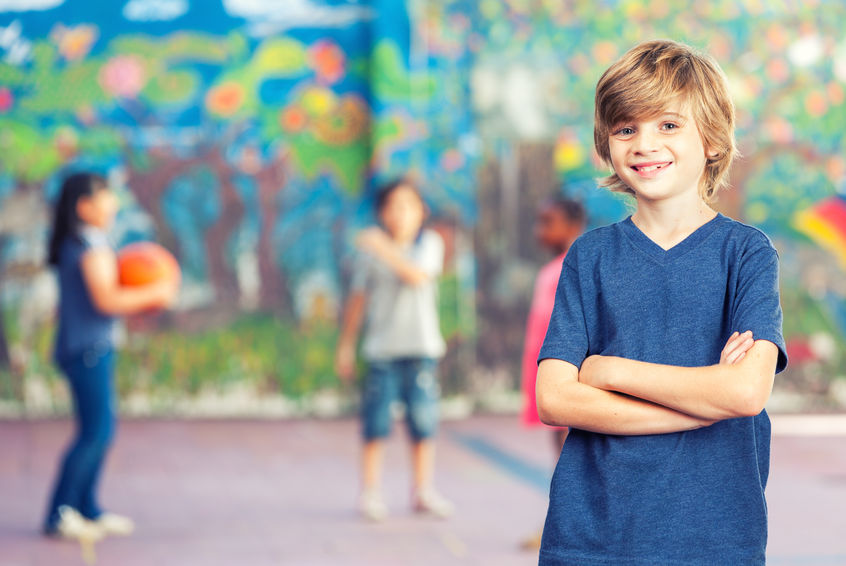As mothers, it’s our innate desire to protect our children from the myriad challenges they may face in life, including the risk of addiction. Recognizing and addressing these risks is not just about being vigilant; it’s about understanding and nurturing. The role we play in building our children’s resilience is pivotal. It’s not just about shielding them from harm but equipping them with the strength to face life’s adversities.
The Role of a Nurturing Environment in Preventing Addiction
Creating a nurturing environment is our first line of defense against addiction. A home filled with love and support is a sanctuary for emotional well-being. Open communication and emotional support lay the foundation for trust and understanding. It’s about creating a space where our children feel safe to share their fears, joys, and everything in between.
Promoting Self-Efficacy in Children
Self-efficacy is about believing in one’s ability to achieve and overcome challenges. It’s crucial in a child’s development. As moms, we can nurture this by celebrating their efforts, not just the outcomes. Let’s encourage them to try new things, to fail, and to learn from these experiences. This journey builds confidence and a sense of accomplishment.
The Power of Positive Role Models
We, as parents, are our children’s first and most influential role models. The behaviors we exhibit, the choices we make, and the way we handle life’s ups and downs are closely watched and often emulated. By demonstrating healthy habits and decision-making, we set a standard for them to follow.
Recognizing Early Signs of Distress
Being able to identify early signs of emotional distress in children is crucial for preventing addiction and other related issues. Emotional distress in children can manifest in various ways, depending on their age and individual personalities. Common signs include significant changes in eating or sleeping patterns, withdrawal from family or friends, a sudden disinterest in activities they used to enjoy, or unexplained outbursts of anger or sadness.
Other indicators may be more subtle, such as declining school performance, increased secrecy, or adopting a dismissive attitude towards family values and norms. In adolescents, experimentation with substances, even in seemingly harmless contexts, can be an early warning sign, especially when coupled with changes in social circles or a drop in academic or extracurricular engagement.
As parents, it’s essential to approach these signs with empathy and concern rather than punishment or judgment. Open, non-confrontational conversations where children feel safe to express their feelings are vital. If you notice these signs, consider consulting with a pediatrician, a school counselor, or a child psychologist. Early intervention can make a significant difference in addressing underlying issues and steering children back towards a healthier path.
Teaching Coping Skills for Life’s Challenges
Life will throw challenges at our children; it’s inevitable. Teaching them how to handle stress and adversity is crucial. Simple skills like deep breathing, expressing feelings through art or writing, and problem-solving can equip them with the tools they need to face these challenges head-on.
“Incorporating structured coping mechanisms in early childhood significantly reduces the likelihood of substance abuse in later years,” explains Dr. Samantha, a senior psychologist at ADAPT Programs. “Teaching children simple techniques like mindfulness, emotional expression through art, and basic problem-solving skills lays a foundation for healthy emotional regulation. It’s essential for parents to recognize that these skills, when nurtured early, can be powerful tools in preventing addiction.“
Creating a Balance – Praise and Constructive Feedback
Balancing praise with constructive feedback is an art. Praising effort and specific behaviors, rather than just the result, fosters a growth mindset. It’s about recognizing their efforts and guiding them through their mistakes with empathy and understanding, helping them learn and grow.
Personal Anecdote – Sarah’s Journey with Her Son
“I remember when my son, Alex, was going through a tough phase during his early teens,” shares Sarah, a mother of two. “He started becoming withdrawn, his grades slipped, and he was always irritable. At first, I thought it was just typical teenage behavior, but when he started avoiding his usual group of friends, I knew something was off.
I decided to apply some of the strategies I had read about. We started having regular ‘no-judgment’ chats, where he could talk about anything bothering him without fear of being scolded. It wasn’t easy at first, but gradually, he opened up about feeling pressured at school and struggling to fit in. We worked together on building his self-efficacy by setting small, achievable goals. I also made an effort to model positive coping mechanisms, like going for walks when I was stressed, instead of just bottling it up.
The turning point was when he joined a local art class, a suggestion from a fellow parent. It became an outlet for him to express his emotions and connect with kids outside his school circle. Slowly, I saw the vibrant, enthusiastic boy he used to be returning. It taught me the power of patience, listening, and just being there for him.”
Encouraging Healthy Social Connections

The company our children keep can significantly influence their life choices. Encouraging positive friendships and social interactions is vital. It’s about guiding them to find peers who uplift them and share similar values, and sometimes, it’s about being there to help them navigate through peer pressure.
A Continuous Journey of Guidance and Support
Raising children is a journey marked by continuous learning and adapting. As we guide our children through life, our aim is not just to protect them from the risks of addiction but to empower them to face life’s challenges with resilience and strength. Our love, support, and guidance are the most powerful tools we have in this endeavor. Let’s use them wisely and lovingly.




